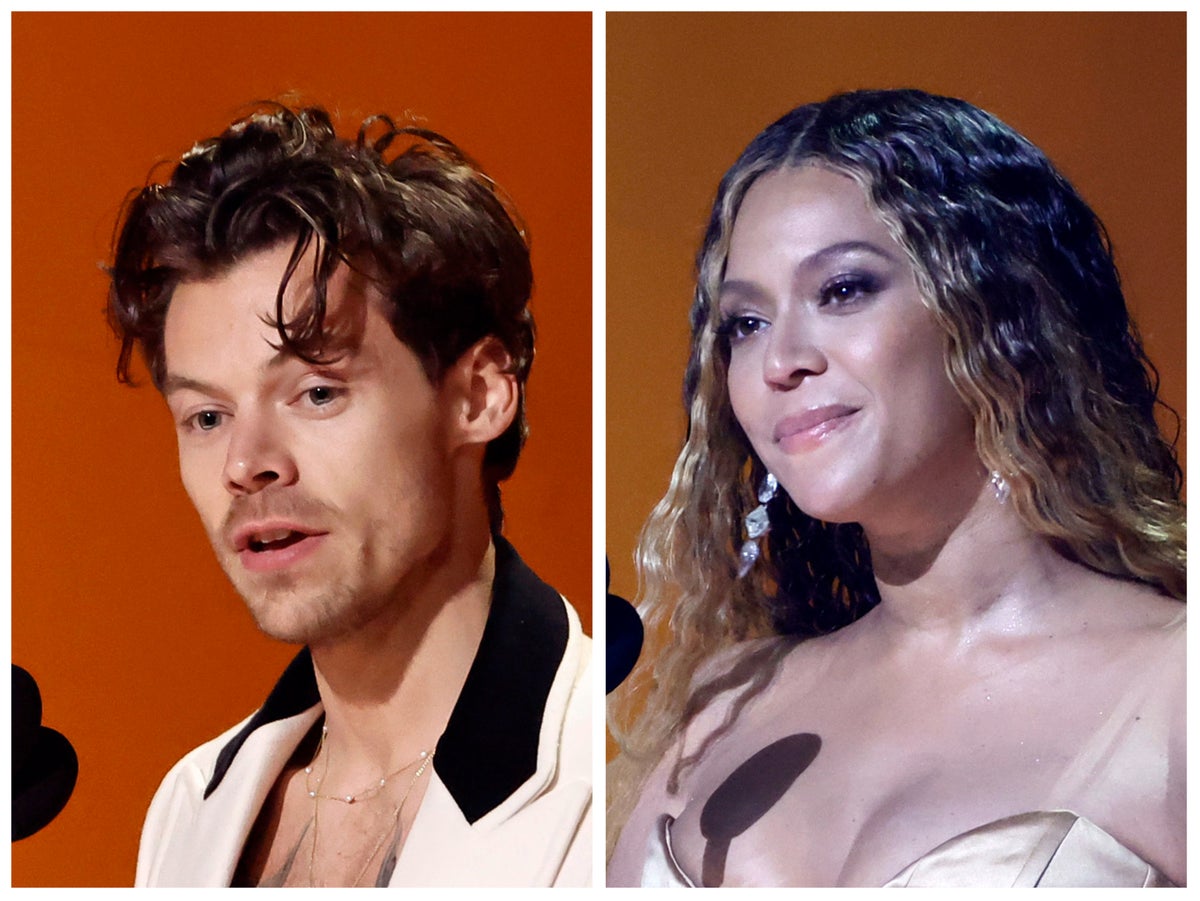
The 2023 Grammys was set up as Beyoncé’s Revenge; a comeback match against fellow multiple nominee Adele. When these two superpowers of female fortitude and redemption last clashed in 2017, the Brit singer swept the board – and expressed her dismay in her Album of the Year acceptance speech. “I can’t possibly accept this award. I’m very humbled and very grateful and gracious, but [the] artist of my life is Beyoncé. The Lemonade album was so monumental,” she sobbed. It was the second time running that Beyoncé had been robbed of the AOTY gong, having lost out to Beck in 2015.
So, though host Trevor Noah spared no airtime in keeping viewers informed as to Queen Bey’s progress towards becoming recipient of the most number of Grammys ever – 32, beating the record previously held by Hungarian-British conductor Georg Solti – all eyes were on the final award of the night, the 65th Grammys’ very own Rocky Balboa moment.
The bare modicum of critical evaluation would have given Renaissance Album of the Year over Adele’s 30 any day, of course. But critical evaluation didn’t reckon on Harry’s House. Harry Styles stepping up to receive the night’s biggest award for Album of the Year was a baffling and strangely deflating finale for a night so ramped up for cele-Bey-tion.
Already, Styles had delivered the most lacklustre performance of the night, first spotted wandering about on a revolving stage full of dancers – well, more like loiterers really – before his rendition of “As It Was” was upstaged by his own sparkly yeti outfit. And his AOTY win, for all the fine melodic attributes of Harry’s House, showed a deep lack of imagination at the very root of the Grammys voting process.
As with Lemonade, Renaissance marks a bold evolution in pop music. Dismantling the genre and reassembling it in challenging and unexpected new formulations, the album re-evaluated the possibilities of popular sonics and merged, warped and morphed tracks in ways that made Spotify sound as though it was melting from the inside out.
Harry’s House, meanwhile, is a modernist collection of standard-issue pop reference points – A-Ha, Prince, The Weeknd, Bruno Mars – with the odd bit of psych rock, indie pop and acoustic folk thrown in. In terms of the fundamental visions involved, they’re in different leagues: Beyoncé pioneers, Styles imitates.
That Beyoncé hasn’t been awarded a single AOTY for her groundbreaking work on Lemonade, Renaissance or, back in 2015, Beyoncé either seems – to put it kindly – a major oversight for a ceremony that has faced years of accusations of racial bias in its most prestigious categories. The Grammys have a grand total of 91 award categories across a vast array of genres, but most are presented during an unscreened Premiere Ceremony before the main show like one relentless, 90-minute howl of “diverse enough for you, Twitter!?”.
The effect – besides making the main event feel like watching Celebrity Who Wants to Be a Millionaire, in that the main players don’t actually need the prizes and the people that really deserve them aren’t even invited – is to give many minority artists a tokenistic niche nod while denying them the spotlight, platform and high-profile validation of the ceremony proper.

During the actual Grammys, Black artists delivered the most powerful, impactful and plain fun performances of the night, from Stevie Wonder and Smokie Robinson’s Motown medley to the all-star tribute to 50 years of hip-hop featuring Missy Elliott, Public Enemy, LL Cool J, Run-DMC and fellow rap icons galore. Yet it was Styles and blues legend Bonnie Raitt who swept up the headline Album and Song of The Year awards. Twitter will make of that what it will.
Still, at least Dr Dre got his own Dr Dre Global Impact award named after him, opening the door for every act to win their own self-titled Grammy in future. So the 2024 Beyoncé Knowles-Carter Robbed Again Award goes to.…







